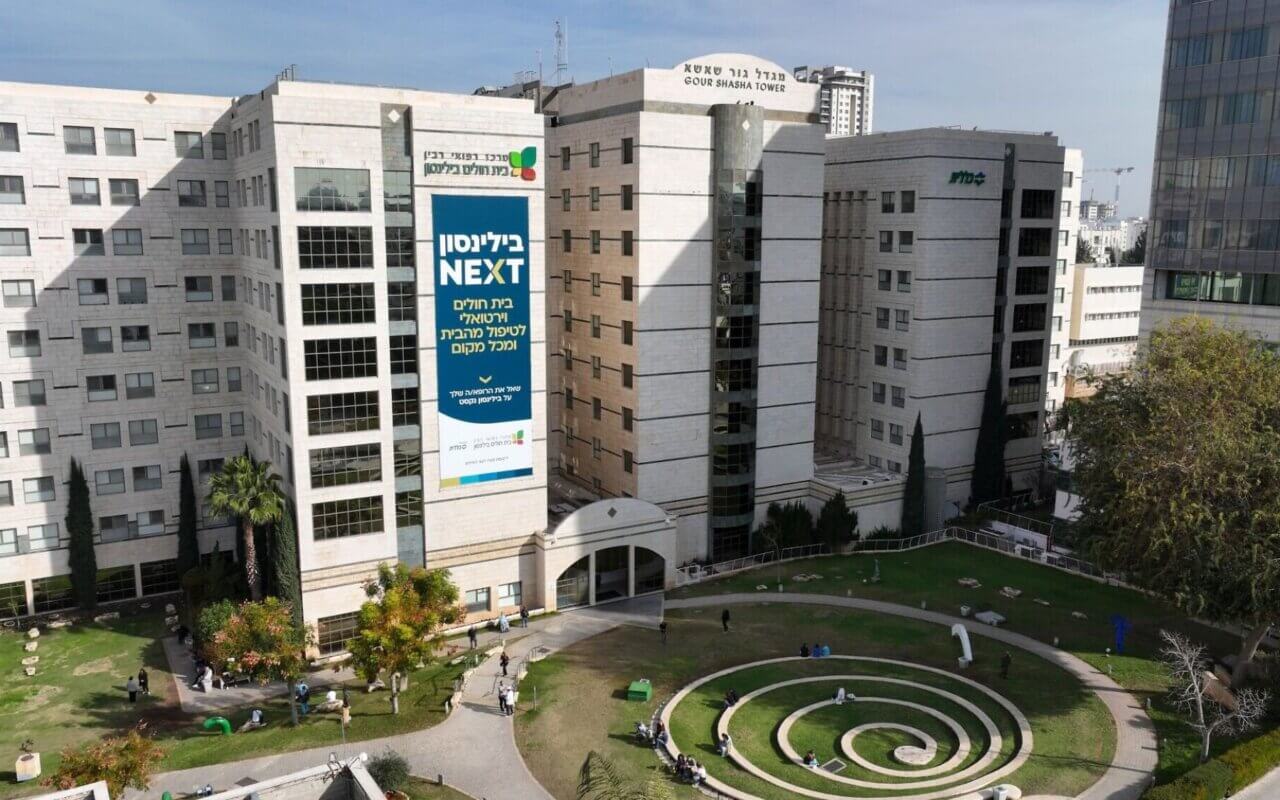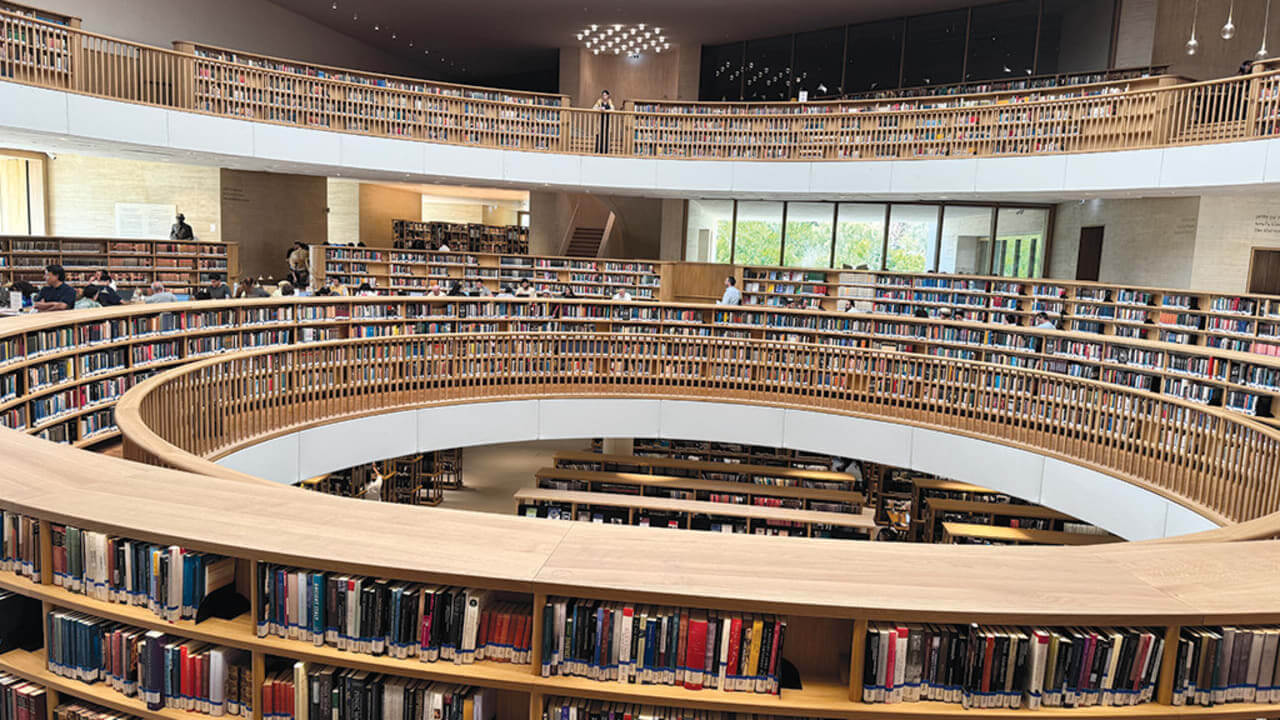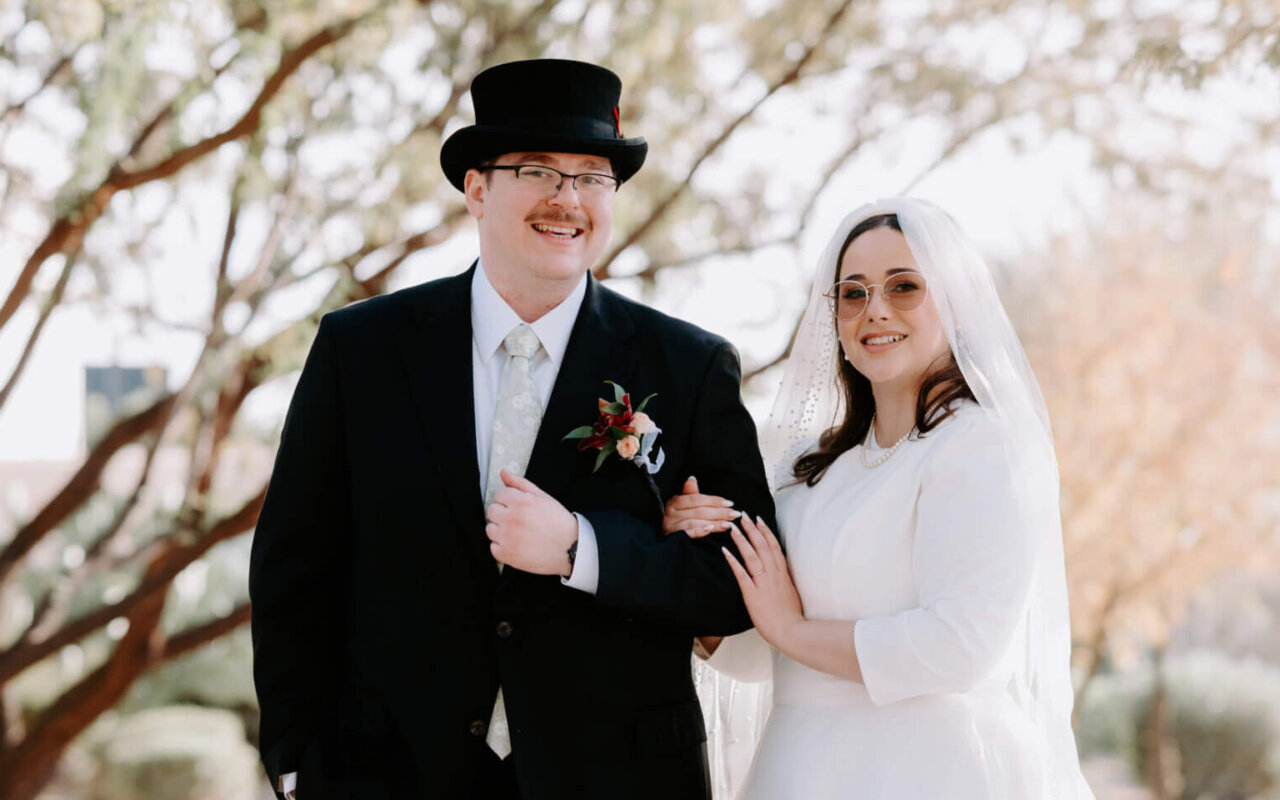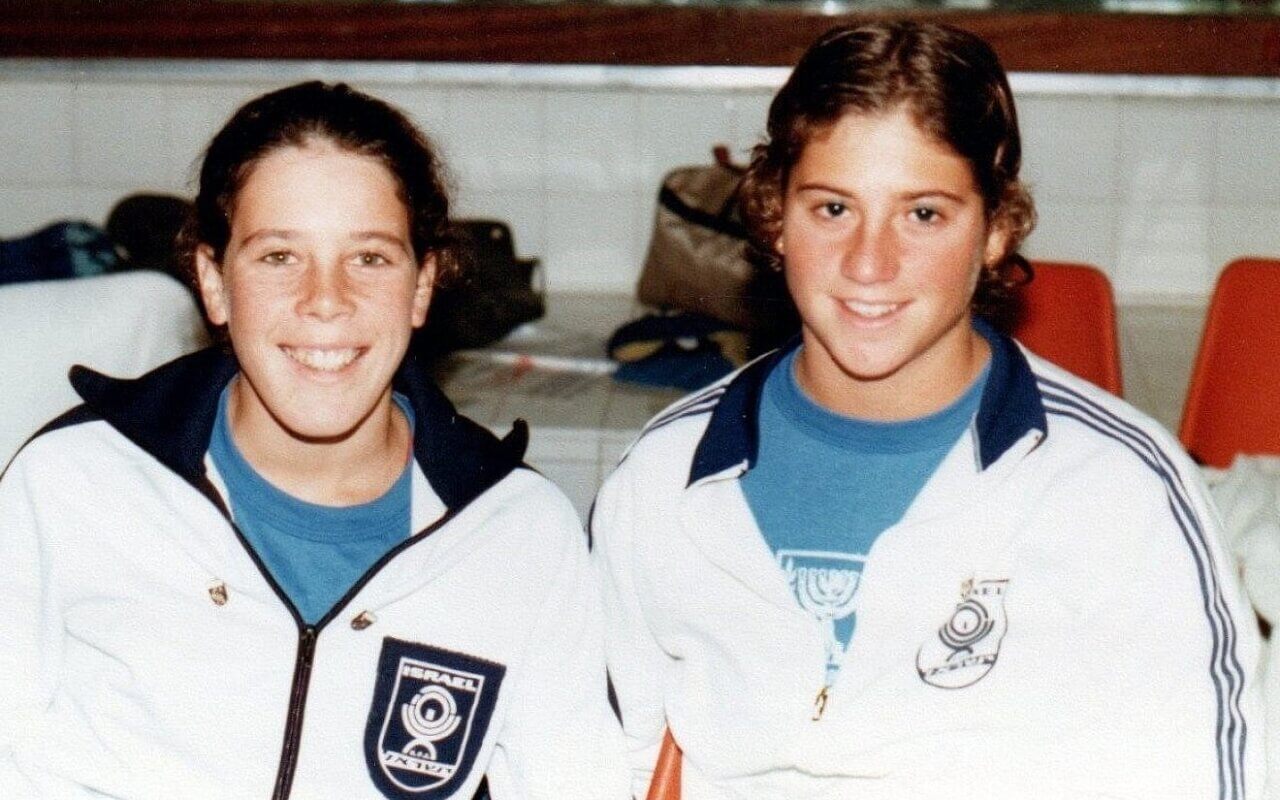Study by Professor Idit Maya and her team has “significant implications, especially for Jews in Israel and the Diaspora.”
View original article on JNS.org
If Professor Idit Maya has her way, countless Jewish families in Israel and around the world will be spared from confusing information and, in some cases, agonizing decisions about possible termination of pregnancies due to the risk of hereditary diseases.
In an exclusive interview with JNS from her office and lab at the Rabin Medical Center-Beilinson Hospital, which is affiliated with the Clalit Health Services in Petach Tikvah, Maya, the acting director of RMC’s Genetics Institute and head of the research team, explained that current global standards may overestimate the risk of genetic defects in the offspring of Jewish couples.
This can cause unnecessary alarm for parents who undergo prenatal testing for genetic disease. The results of the study have “significant implications, especially for Jews in Israel and the Diaspora,” the team said.
Maya and her team, in collaboration with Professor Lena Sagi-Dain, head of prenatal genetic services at Carmel Medical Center, analyzed vast amounts of genetic data from Jewish ethnic subgroups, with the aim of estimating the risk of genetic disease in Jewish populations.
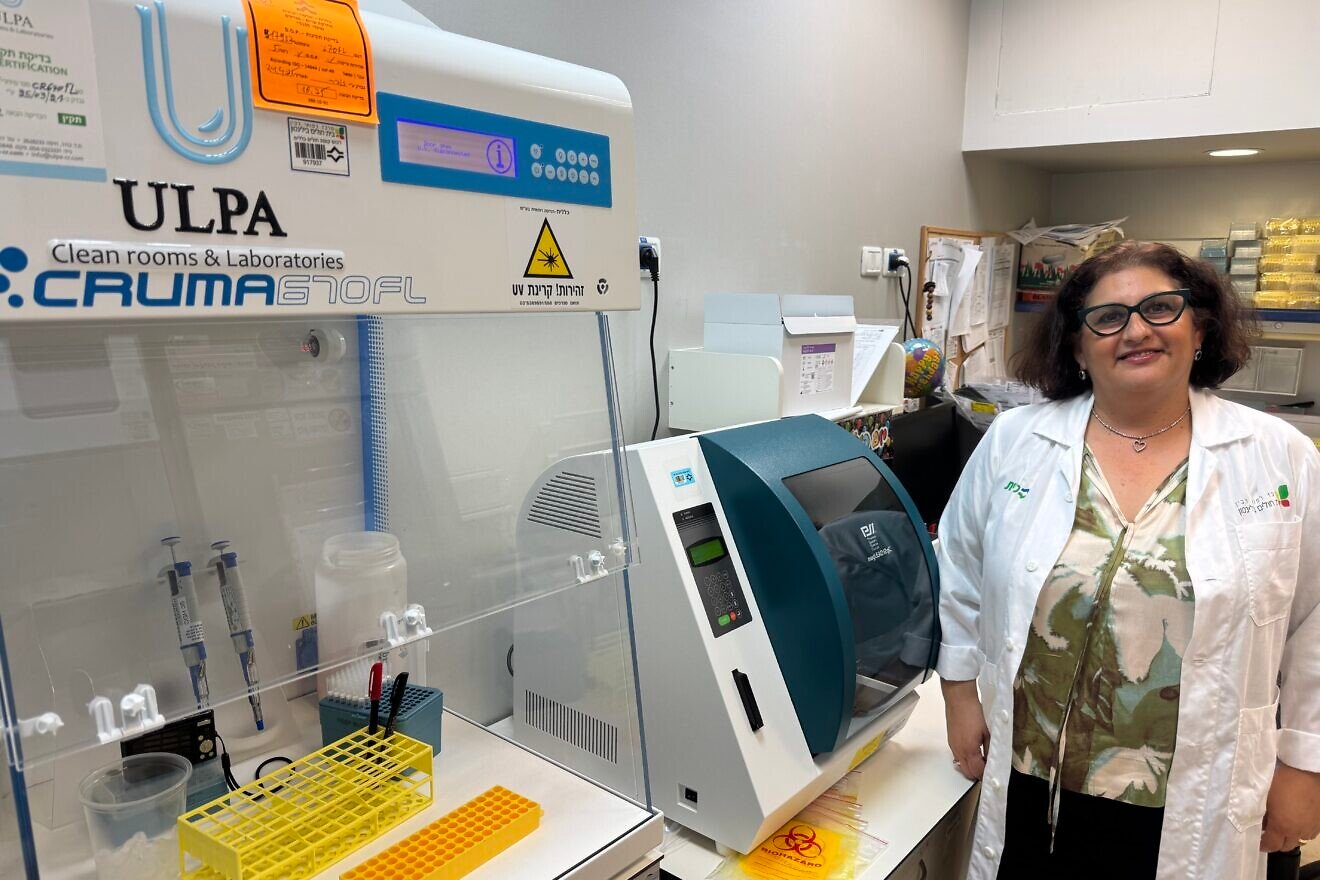
Maya’s groundbreaking study has resulted in the creation of a new genetic risk model, recently adopted by the Genetics Society of Israel. The model offers more accurate, community-specific assessments that have the potential to better guide genetic experts and physicians worldwide as they counsel their patients.
Using white paper, a dozen colorful highlighters and elaborate graphs, Maya explained both basic genetic concepts and details of the new model.
“Everyone has two copies of all genetic material. We get one copy got from our mother, and one copy from our father. Small blocks of your DNA, only three million out of the billions, will be the same on both copies—the same DNA inherited from the mother and the father.”
She went on to explain that these stretches of identical DNA, called regions of homozygosity (ROH), may be found when doctors use a genetic test called Chromosomal Microarray Analysis (CMA). This test looks at variations in the DNA to identify patterns.
ROH—identical segments of DNA that are inherited from both of the parents—may mean that the parents are related or share a common ancestor. Doctors use the test as a tool in diagnosing rare genetic diseases and in genetic counseling. But there’s no universal agreement on how large ROH regions need to be before they should be reported to doctors or patients. Genetic labs need to report ROH when there is a real worry of disease, but not create unnecessary concern when there is no real issue.
According to Maya, the amount of ROH in a person’s genome can vary depending on a person’s ethnic background, and it is critical to take this into consideration when interpreting these tests, especially for Jews. She asserted that the worldwide rules for reporting ROH that might signal a health risk may be too strict for ethnic Jewish populations.
In many small Jewish communities around the world, there was a tendency to marry within extended families and communal members. The evidence for this is in our DNA today.
Maya and her team looked at how much ROH is present in people from different ethnic backgrounds and determined whether some groups have a higher percentage or longer ROH than others. The goal was to help decide when ROH should be considered medically important, based on a person’s background.
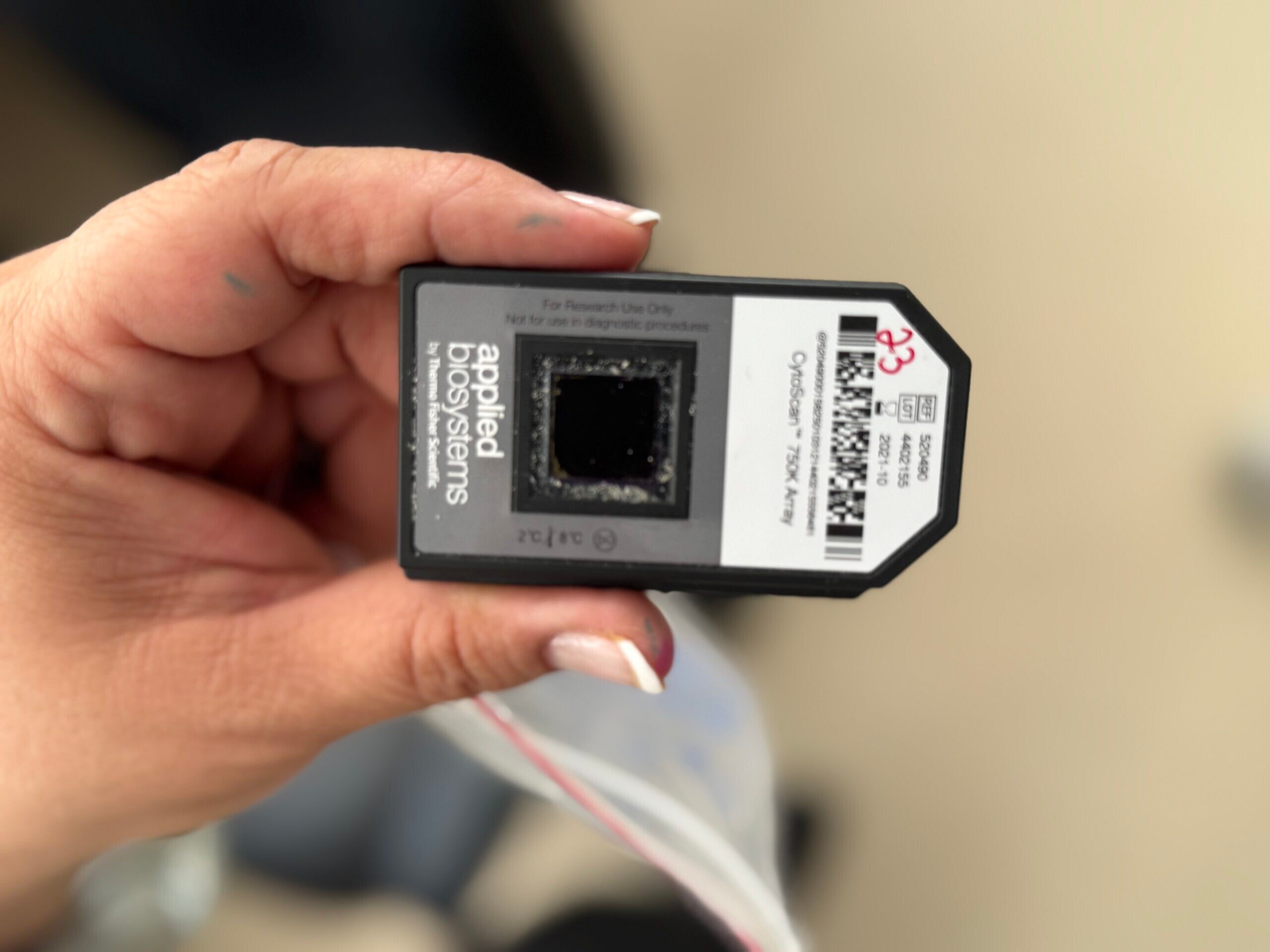
The researchers analyzed some 15,000 genetic samples from RMC, including blood and embryo data. Based on this comprehensive study, they developed a new algorithm that adapts risk assessment to the genetic profile of each population.
Importantly, the people in the study were grouped by ethnicity. Maya said, “We have something like 16 ethnic backgrounds in Israel.”
She noted that Jews in Israel are both Ashkenazi and Sephardi, originating from such places as “Bukhara, Iran, Kurdistan, Iraq, Syria, Lebanon, Libya, Afghanistan, Yemen and Ethiopia.” She also studied members of the Christian and Muslim Arab, Bedouin and Druze communities.
The team calculated the total ROH percentage of each person’s DNA and measured the size of each ROH region. They found large variations and clear differences in ROH size and percentages between the ethnic groups.
“What we found, and this is the amazing thing in this research, that we found that the size of those segments is proportional to the percentage of the total sample,” she said.
Overall, the research showed that interpreting ROH is complex and that using the current worldwide standard doesn’t work well for the Jewish community. Maya said, “American guidelines, the European guidelines, are based on 300 million people who are from different ethnic backgrounds.”
She explained further, “If we didn’t have the norm in Israel and in the specific ethnic background, we wouldn’t know the norm in the percentage, and we would have had to tell the doctor and the couple that the result is abnormal.”
The ramifications of the research, according to Maya’s team, go beyond the Israeli and Jewish populations. It has implications for the entire medical community. The new model shows that what is often labeled as “abnormal” in one population may, in fact, be perfectly normal in another.
“The universal threshold used today was originally developed for genetically mixed populations, such as those in the United States. But applying that same measure to communities with shared ancestry—such as Jews, Druze, Circassians or other ethnic communities—can produce misleading results,” Maya said.
Rather than using a rigid, one-size-fits-all global cutoff, the new model allows for a personalized “true risk threshold.” This distinction makes it possible to differentiate between normal genetic similarities—for example, among Ashkenazi, Bukharin or Christian Arab couples—and truly concerning closeness that could point to inherited syndromes and diseases linked to “genetic imprinting.”
Maya advised that genetic labs should use customized guidelines based on the population they’re working with. This can help make genetic testing reporting more accurate and meaningful for patients.
She concluded, “Our model will reduce unnecessary concerns, prevent false alarms and in some cases, even save pregnancies that might otherwise have been terminated. It’s a meaningful shift for the benefit of our patients.”
